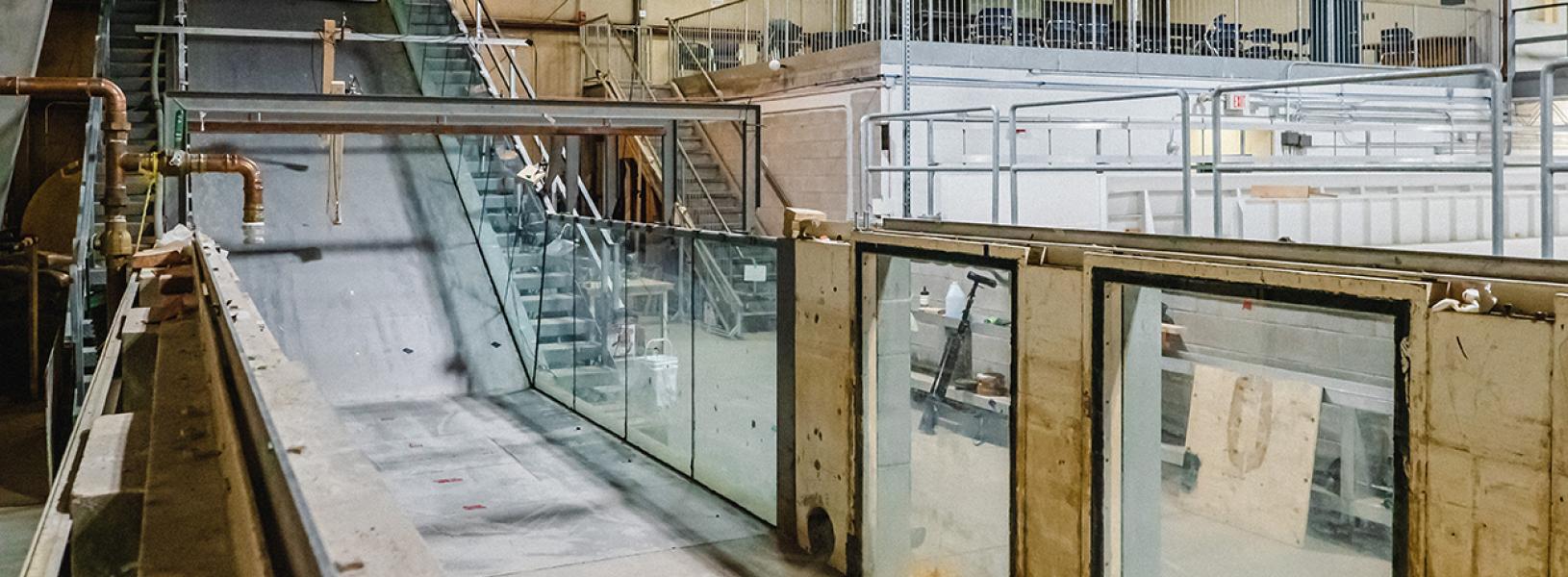Unstable hillsides can slide away fast, so Lisa Tauskela keeps pouring tons of soil down a massive flume to understand how.
“We’re doing large-scale testing,” says the second-year master’s student in civil engineering.
“We fill it [the soil] with water so it’s nice and wet, and open the door of the flume, which is two storeys tall.”
The wet mix whooshes down and spreads out on a flat area, “and we measure everything – how fast is it going, how far does it go, what shape is it in? And then more science-y stuff – what is the water pressure within it? How does this pressure develop? How does it go away?”
It all relates to British Columbia’s landslides last summer. “We’re basically recreating those landslides in the lab.”
“Some [in B.C.] didn’t go very far, and some went really far.”
Differences in internal water pressure may be the reason, but those are hard to measure in the field. It’s easier in the lab.
“Every single debris flow in B.C. was different,” even where two were close together, says Ms. Tauskela.
“It’s a relatively new field.”
There’s currently little understanding of what makes one landslide more dangerous than another. Queen’s work could change that.
Ms. Tauskela’s group ran 20 large tests, each involving four students hand-filling a container with tons of silt, sand, and gravel. Luckily, Ms. Tauskela does triathlons.
“We were shovelling 80 buckets, each 50 pounds. I didn’t go to the gym for four months because I didn’t need to.”


